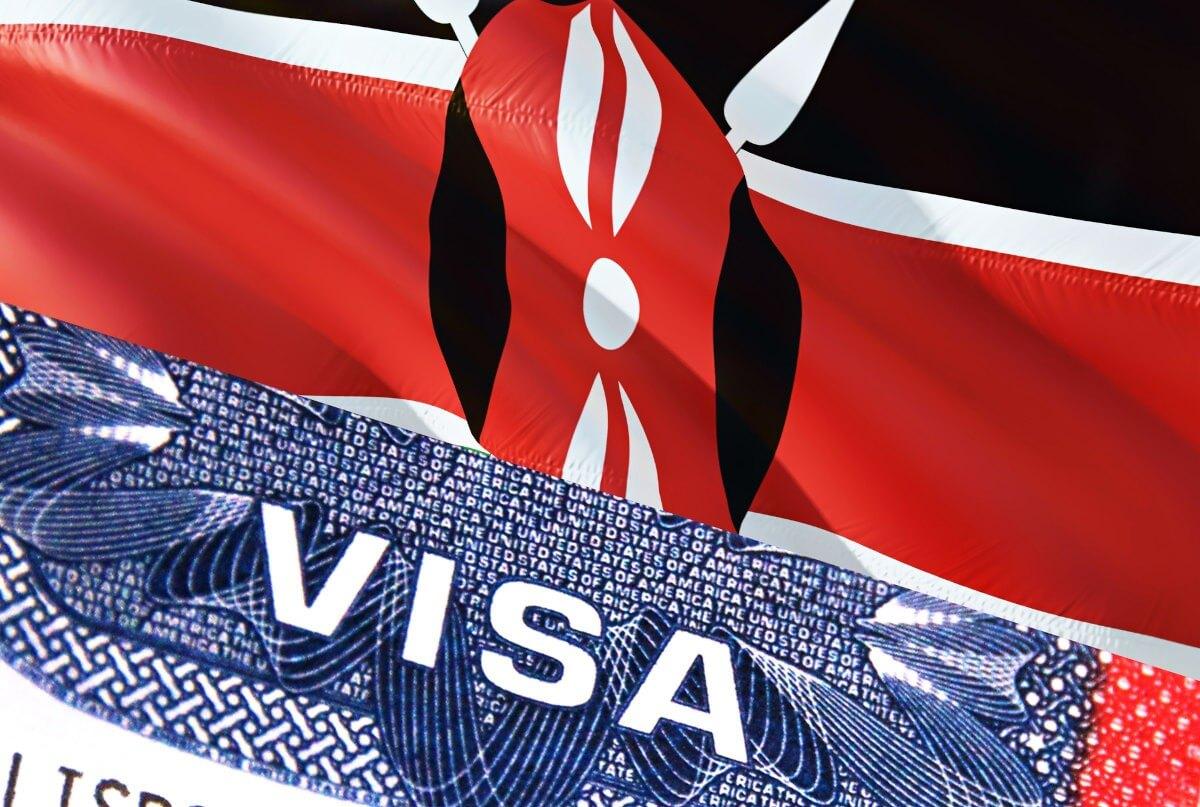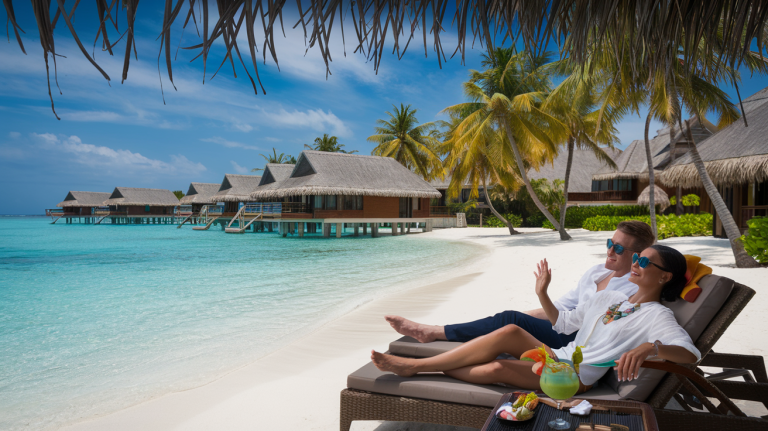Kenya Visa Application Documents: A Complete Guide for Travelers (2025)

Planning a trip to Kenya? The land of stunning savannahs, magnificent wildlife, and breathtaking coastlines awaits you! But before you pack your bags and head off to witness the Great Migration or lounge on the pristine beaches of Diani, there’s one crucial step you need to take care of – securing your Kenya visa.
Kenya has simplified its visa process with an electronic visa system, making it more convenient for travelers worldwide. However, knowing exactly what documents you need and how to present them correctly can make the difference between smooth sailing and unnecessary delays. Let’s break down everything you need to know to ensure your Kenya adventure starts without a hitch!
Kenya Visa Types: Which One Do You Need?
Before diving into the specific document requirements, it’s important to understand what type of visa you’ll need for your Kenyan adventure.
Tourist Visa
This is the most common visa for travelers visiting Kenya for holidays, wildlife safaris, and coastal getaways. The single-entry tourist visa allows you to stay in Kenya for up to 90 days.
Transit Visa
If you’re just passing through Kenya (staying less than 72 hours), you’ll need a transit visa.
Business Visa
For those traveling to Kenya for business meetings, conferences, or investment purposes, the business visa is your go-to option.
East Africa Tourist Visa
If your travel plans include visiting Rwanda and Uganda alongside Kenya, consider the East Africa Tourist Visa, which allows multiple entries between these three countries within 90 days.
Essential Documents for Kenya Visa Application
Now, let’s get into the heart of what you came here for – the exact documents you need to prepare for your Kenya visa application.
1. Valid Passport
Your passport is the foundation of any international travel document. For Kenya visa applications, your passport must:
- Be valid for at least six months beyond your planned departure date from Kenya
- Have at least two blank visa pages for immigration stamps
- Be in good condition without any damage
Pro tip: It’s always a good idea to have a digital copy of your passport stored securely online and a physical photocopy packed separately from your actual passport.
2. Recent Passport-Sized Photographs
You’ll need to provide recent passport-sized photographs that meet these specifications:
- Taken within the last six months
- Clear, front-facing view with a white background
- No glasses or head coverings (unless worn for religious purposes)
- Standard passport photo dimensions (45mm x 35mm)
3. Completed Visa Application Form
Kenya uses an online application system, so you’ll need to:
- Create an account on the official Kenya eVisa portal
- Fill out all required personal information
- Provide details about your travel plans
4. Travel Itinerary
Immigration officials want to understand your plans in Kenya. You should provide:
- Flight itinerary showing entry and exit dates
- A day-by-day breakdown of your planned activities (especially useful for longer stays)
5. Hotel Reservations or Accommodation Details
You’ll need to show where you’ll be staying during your visit:
- Hotel booking confirmations
- If staying with friends or family, a letter of invitation from your host
- For safari tours, reservation details from your tour operator
6. Proof of Sufficient Funds
Kenya wants to ensure you can financially support yourself during your stay:
- Recent bank statements (typically from the last three months)
- Credit card statements
- Travelers checks
- For sponsored trips, a letter from your sponsor detailing financial support
7. Return Flight Ticket
This confirms your intention to leave Kenya after your visit:
- A confirmed return or onward journey ticket
- For open-ended tickets or overland travel plans, additional documentation may be required
8. Travel Insurance (Recommended)
While not strictly mandatory, having travel insurance is highly recommended:
- Medical coverage for any health emergencies
- Trip cancellation coverage
- Baggage loss protection
9. Yellow Fever Vaccination Certificate
Depending on your country of origin or transit countries:
- Required if you’re arriving from a country with risk of yellow fever
- Must be administered at least 10 days before arrival in Kenya
![Insert image of a yellow fever vaccination certificate here]
How to Apply for a Kenya Visa Online
Kenya’s eVisa system has streamlined the application process, making it more accessible for travelers worldwide. Here’s how to navigate it:
Step 1: Create an Account
Visit the official Kenya eVisa website and create a personal account.
Step 2: Select Visa Type
Choose the appropriate visa category (tourist, business, transit) based on your travel purpose.
Step 3: Complete the Application Form
Fill in your personal details, travel information, and answer all required questions accurately.
Step 4: Upload Required Documents
Prepare digital copies (usually PDF or JPEG format) of:
- Your passport bio page
- Passport-sized photograph
- Flight itinerary
- Hotel reservations
- Any additional documents based on your visa type
Step 5: Pay the Visa Fee
The current visa fees are:
- Single-entry visa: $51
- Transit visa: $21
- Multiple-entry visa: $101
Payments are made online via credit card, debit card, or other accepted payment methods.
Step 6: Track Your Application
After submission, you’ll receive a confirmation email with a tracking number to check your application status.
Step 7: Download Your eVisa
Once approved (typically within 48 hours), you’ll receive an email notification. Download and print your eVisa to present upon arrival in Kenya.
Common Kenya Visa Application Questions
Do I need travel insurance for my Kenya visa application?
While travel insurance isn’t a mandatory requirement for obtaining a Kenya visa, I strongly recommend getting comprehensive coverage. Kenya’s wilderness adventures and outdoor activities come with inherent risks, and medical facilities outside major cities might be limited. A good insurance policy covering medical emergencies, evacuations, and trip cancellations provides peace of mind during your travels.
What financial proof do I need to show for a Kenya visa?
Kenya immigration wants to ensure you can support yourself during your stay. Bank statements from the past three months are typically sufficient. There’s no officially specified minimum amount, but having the equivalent of $100-$150 per day of your stay is generally considered adequate. If someone else is sponsoring your trip, include a letter from them confirming financial support along with their bank statements.
Can I get a Kenya visa on arrival?
No, Kenya has phased out visas on arrival. All visitors must obtain an eVisa before traveling. This policy change has been in effect since January 2021, so any information suggesting otherwise is outdated. The only exception is for citizens of certain East African countries who are exempt from visa requirements.
How long does it take to process a Kenya visa application?
The standard processing time is 48 hours, but I’d recommend applying at least a week before your trip to allow for potential delays or requests for additional information. During peak tourist seasons (July-September and December-January), processing times may extend to 3-5 days. If you need your visa urgently, it’s best to contact the Kenyan embassy directly.
What are the photo requirements for a Kenya visa application?
Your photo must be a recent (within six months) color image with a white background. Standard passport photo dimensions apply (45mm x 35mm). You should be facing the camera directly with a neutral expression, and your full face must be visible. Religious head coverings are permitted as long as they don’t obscure facial features.
Are there specific health requirements for traveling to Kenya?
The main health requirement is a yellow fever vaccination certificate if you’re arriving from or have transited through a country with risk of yellow fever transmission. Additionally, while not mandatory for visa purposes, Kenya is a malaria-endemic country, so antimalarial medication is recommended. COVID-19 requirements change frequently, so check the latest guidelines before traveling.
What is the validity period of the passport required for a Kenya visa?
Your passport must be valid for at least six months beyond your intended departure date from Kenya. For example, if you plan to leave Kenya on October 15, 2025, your passport should be valid until at least April 15, 2026. Additionally, your passport should have at least two blank pages for visa stamps and entry/exit stamps.
Can I extend my stay once I’m in Kenya?
Yes, visa extensions are possible but not guaranteed. If you wish to extend your stay, you must apply at the Immigration Headquarters in Nairobi or at immigration offices in major towns before your current visa expires. You’ll need to provide a reason for the extension, show sufficient funds, and possibly provide updated accommodation details.
Do children need separate visas for Kenya?
Yes, every traveler regardless of age needs their own individual visa for Kenya. The application process and document requirements for children are similar to adults, with the addition that minors traveling without both parents should carry a consent letter from the absent parent(s).
How much does a Kenya tourist visa cost?
A single-entry tourist visa costs $51, while a multiple-entry visa costs $101. The transit visa is priced at $21. These fees are subject to change, so always check the official Kenya eVisa portal for the most current pricing. The payment must be made online using a credit card or other accepted electronic payment methods.
Special Considerations for Different Visa Types
Business Visa Additional Requirements
If you’re applying for a business visa, you’ll need these additional documents:
- Invitation letter from a Kenyan company
- Letter from your employer stating the purpose of your visit
- Company registration documents of the Kenyan host business
Student Visa Documents
For those planning to study in Kenya:
- Admission letter from a Kenyan educational institution
- Proof of payment of tuition fees
- Academic certificates from previous studies
Transit Visa Simplified Requirements
For transit visas, you’ll need:
- Proof of onward travel within 72 hours
- Valid visa for your final destination (if required)
![Insert image of someone reviewing visa documents here]
Common Reasons for Kenya Visa Rejection
To avoid disappointment, be aware of these common reasons for visa rejection:
Incomplete Documentation
Always double-check that you’ve included all required documents before submitting your application.
Inconsistent Information
Ensure all information across your documents is consistent, including name spelling, dates, and travel plans.
Insufficient Funds
Provide clear evidence that you can financially support yourself during your stay in Kenya.
Passport Issues
Make sure your passport meets all validity requirements and has enough blank pages.
Poor Quality Photographs
Ensure your photos meet all specifications for size, background, and clarity.
Previous Immigration Violations
Any history of overstays or visa violations in Kenya or other countries can affect your application.
Top 20 Travel Destinations in Kenya to Include in Your Itinerary
Now that you understand the visa requirements, let’s explore the amazing destinations you can include in your Kenya travel plans. These locations will help you better plan your itinerary – a key component of your visa application!
1. Maasai Mara National Reserve
The crown jewel of Kenya’s wildlife parks, famous for the Great Migration when millions of wildebeest cross from Tanzania’s Serengeti. The vast savannah landscapes offer incredible safari experiences with abundant wildlife including the “Big Five” (lion, leopard, elephant, buffalo, and rhino).
2. Amboseli National Park
Offering the most iconic views of Mount Kilimanjaro as a backdrop, Amboseli is known for its large elephant herds that roam freely across the Kenya-Tanzania border. The park’s swampy plains and dry lake beds create a unique ecosystem that supports diverse wildlife.
3. Lake Nakuru
Famous for the thousands of flamingos that line its shores, creating a stunning pink fringe around the alkaline lake. The national park surrounding the lake is also home to rhinos, giraffes, and numerous bird species, making it a paradise for wildlife photographers.
4. Nairobi
Kenya’s bustling capital offers a unique blend of urban experiences and natural wonders. Visit the Nairobi National Park – the only wildlife park located within a capital city, explore the Karen Blixen Museum, or interact with baby elephants at the David Sheldrick Wildlife Trust.
5. Mombasa
Kenya’s second-largest city and major coastal hub, Mombasa blends Arabic, Portuguese, and African influences in its architecture, culture, and cuisine. The historic Fort Jesus, vibrant Old Town, and access to stunning beaches make it a perfect cultural and relaxation destination.
6. Tsavo National Park
Split into East and West sections, Tsavo is Kenya’s largest national park, covering about 4% of the country. The park is known for its red elephants (colored by the distinctive red soil), diverse landscapes ranging from mountains and rivers to savannahs and forests.
7. Mount Kenya
Africa’s second-highest mountain offers challenging climbing routes for experienced mountaineers and gentler hiking trails through its lower slopes. The mountain’s varying altitude zones create distinct ecosystems that support unique flora and fauna.
8. Diani Beach
Consistently rated among Africa’s best beaches, Diani features 17 kilometers of powder-white sand and turquoise waters. Perfect for both relaxation and adventure, you can enjoy snorkeling, kitesurfing, deep-sea fishing, or simply unwinding under the palm trees.
9. Lamu Island
A UNESCO World Heritage Site where donkeys remain the main form of transportation in narrow, winding streets. Lamu Old Town is Kenya’s oldest continuously inhabited settlement, showcasing exceptional Swahili architecture and a preserved cultural heritage.
10. Hell’s Gate National Park
Named for its intense geothermal activity, this park inspired settings in Disney’s “The Lion King.” Visitors can cycle or walk among wildlife, climb towering cliffs, and explore gorges with hot springs and natural geysers.
![Insert image of one of Kenya’s iconic landscapes or wildlife here]
11. Samburu National Reserve
Located in Kenya’s remote north, Samburu is known for the “Special Five” – unique species including the reticulated giraffe, Somali ostrich, Grevy’s zebra, gerenuk, and beisa oryx. The reserve offers a more rugged, authentic safari experience away from the tourist crowds.
12. Ol Pejeta Conservancy
Home to the world’s last two northern white rhinos, Ol Pejeta is a leader in conservation efforts. The conservancy also houses a chimpanzee sanctuary and offers close encounters with the Big Five on game drives, walking safaris, and even night game drives.
13. Watamu
A small coastal town renowned for its Marine National Park, which protects spectacular coral reefs perfect for snorkeling and diving. Watamu is also a critical turtle nesting site, and visitors can participate in turtle conservation activities.
14. Malindi
This coastal town blends Italian and Swahili influences, creating a unique cultural experience. Malindi offers beautiful beaches, excellent Italian restaurants, historical sites like the Vasco da Gama Pillar, and access to the stunning Malindi Marine National Park.
15. Kakamega Forest
The last remnant of the ancient Guineo-Congolian rainforest that once spanned across Africa. This unique ecosystem harbors over 400 butterfly species, 300 bird species, and primates like the rare De Brazza’s monkey, offering a completely different experience from Kenya’s savannahs.
16. Aberdare National Park
A high-altitude mountain range with deep ravines, moorlands, and dense forests. The park is famous for its unique accommodations like The Ark and Treetops lodges, where you can watch wildlife visiting waterholes from elevated viewing platforms.
17. Nyeri
A charming town serving as a gateway to the Aberdare Range and Mount Kenya. Nyeri has significant historical importance as the burial place of Lord Baden-Powell, founder of the Scout Movement, and offers cultural tours of coffee plantations.
18. Kitale
An agricultural town providing access to Mount Elgon and the lesser-visited Saiwa Swamp National Park – Kenya’s smallest national park and home to the endangered sitatunga antelope. The area is excellent for bird watching and experiencing rural Kenyan life.
19. Lake Turkana
The world’s largest permanent desert lake and a UNESCO World Heritage Site, Lake Turkana is surrounded by volcanic landscapes. The remote location offers adventurous travelers authentic cultural experiences with indigenous tribes and extraordinary geological features.
20. Chyulu Hills
Described by Ernest Hemingway as the “Green Hills of Africa,” this young volcanic mountain range offers breathtaking views, horseback safaris, and cave explorations. The hills create a green oasis between Amboseli and Tsavo National Parks.
Tips for a Smooth Kenya Visa Application Process
Apply Early
Submit your application at least 7-10 days before your planned travel date to allow for processing and potential delays.
Double-Check Everything
Review all information and documents carefully before submission. Simple errors like typos in passport numbers can cause unnecessary complications.
Keep Digital Copies
Save digital copies of all documents and your application confirmation for easy reference.
Use Quality Scans
Ensure all uploaded documents are clear, legible scans or photos.
Follow Up
If your application takes longer than expected, don’t hesitate to follow up through the eVisa portal’s tracking system.
Print Multiple Copies
Once approved, print several copies of your eVisa to have backups while traveling.
Conclusion
Obtaining your Kenya visa is the first step toward an unforgettable African adventure. With the right documents prepared and a clear understanding of the application process, you can focus on the exciting parts of planning your journey – like deciding which of Kenya’s magnificent wildlife parks to visit first or which pristine beaches to lounge on!
Remember that visa requirements can change, so always check the official Kenya eVisa portal for the most up-to-date information before applying. With your visa secured and your itinerary planned, you’ll be ready to experience the magic of Kenya – from the thundering herds of the Great Migration to the gentle lapping of waves on white-sand beaches.
Have you been to Kenya before? Are you planning a trip there soon? I’d love to hear about your experiences or answer any questions about the visa process in the comments below!


